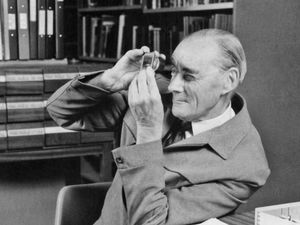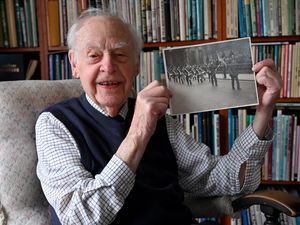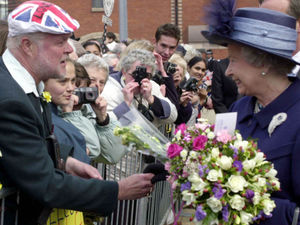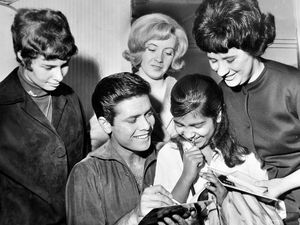DNA test could solve the mystery that haunted civil-war fighter to his grave
Gordon 'Dusty' Bennett and his brother Don were fighting side by side for the Republicans in the final stages of the Spanish Civil War.
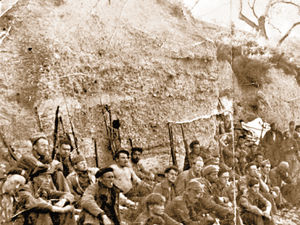
Don, a machine gunner, was spraying bullets towards Franco's fighters, who were by this time clearly in the ascendancy.
The plate on Don's gun slipped, so he couldn't see over the sights. Dusty, who had been feeding the ammunition belt into the Russian-made Maxim, stood up to replace the plate. It was the last thing he ever did.
Dusty Bennett was struck in the chest by an enemy bullet and was killed instantly. Having ensured his brother was dead, Don removed Dusty's personal belongings, and made a makeshift grave by pulling the wall over his brother's body.
Don died in 1974, never knowing what became of his brother's body. But now, some 63 years later, Don's grandson could finally be about to find out.
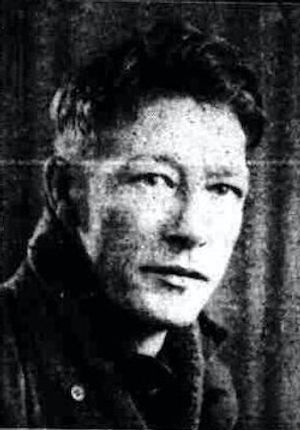
Paul Bennett, a retired social care worker from Walsall, was recently contacted by the Spanish Government which is trying to identify a body found in a mass grave close to where Gordon died.
It is early days, and at the moment the evidence is tenuous. One of the two bodies recovered from the grave was discovered wearing a gold ring, hallmarked by the Birmingham assay office in 1910. The Spanish authorities contacted Birmingham Council, whose records showed that only two fighters from the West Midlands were killed in that region: one, who lived in Birmingham, and Paul's great uncle Gordon.
Paul is realistic about the chances of finally finding his great uncle's body after all these years, and is not getting his hopes up yet. But he says if that turns out to be the case, it will be a huge weight lifted of his mind, after decades of searching.
"I've spent a lifetime searching to find what happened to him," says Paul, who is 59. "My brother started searching, he's a bit older than I am.
"Hopefully it will be the closure of a chapter which haunted my grandad his whole life, I've tried to imagine how he must have felt.
"You're sitting there with somebody, and that somebody is killed. And that somebody is your brother."
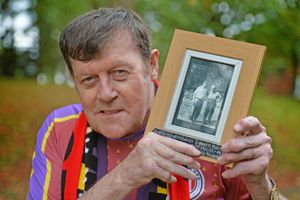
Paul says that Don, who was two years older than Dusty, was a seasoned fighter by the time they were caught in the shoot-out at Gandesa on July 26, 1938. Dusty, on the other hand was a rookie who had not long gone out, and had been paired up with his older brother to gain experience.
The brothers had always been close, having grown up in appalling poverty. Don was born George Street, Walsall, in 1907, and Gordon came along two years later. Their mother, who liked to describe herself as a 'circus performer', was actually a prostitute, and eventually herself with more children than she could handle. So she handed them all over to a children's home in Birmingham, and they were eventually sent to Nova Scotia in Canada as part of a scheme to populate the Empire with British stock.
Don and Dusty were put to work as farm labourers. But they fled to the United States where they joined the International Workers of the World movement, an early trades union.
In the late 1920s they sailed back to England, Don as a deck hand and Dusty a stowaway on a liner. “When he came back, Don immediately began to organise trade unionism in Walsall,” says Paul.
“He joined the Communist Party and, in 1936, went off to fight for the Spanish Republic.”
The legendary International Brigade, made up of foreigners on the Republican side, was in the thick of the last great conflict in the war, the Battle of the Ebro.
In the weeks that followed, when it became clear the cause had been lost, 31-year-old Don joined vanquished Republicans in the long trek across the Pyrenees to the safety of France.
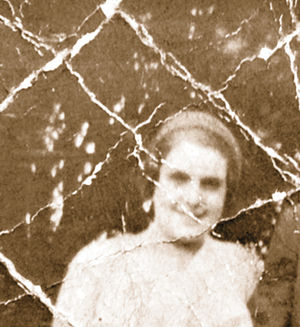
"I have often wondered, in his position, what would he be thinking? He would want his brother to have a decent burial, but at the same time he would want to get out of there and hope that some time in the future somebody comes and finds the body."
Paul says the grave was found close to the nearest hospital to the spot where Dusty was killed, so it could well have been that somebody took him to the mortuary having discovered the body.
He is full of awe what Don must have been going through as he took the long march home after the defeat.
“When I was a young man I flew over the Pyrenees for the first time and thought how beautiful they looked,” says Paul.
“And then I remembered that Don had walked the full length of these mountains. It was some walk.”
Don returned to Walsall were he and his wife Louisa raised their family, and he continued his trade-union activities. Paul remembers hanging on his every word as his grandfather shared his experiences of the civil war.
“Every November 11, we used to stand together at the cenotaph in Walsall," says Paul.
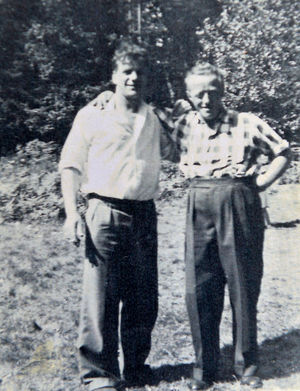
“He would say it was all about people uniting to fight fascism.”
Ironically, Don was denied the chance to take part in the ultimate struggle against fascism when the Second World War broke out a few months later.
“They wouldn’t let him join the British Army because of his Communist past,” says Paul.
“So instead he became a sergeant in the Home Guard.”
For Paul, it is now a matter of waiting to see if he can finally solve the mystery that haunted his grandfather to the grave.

